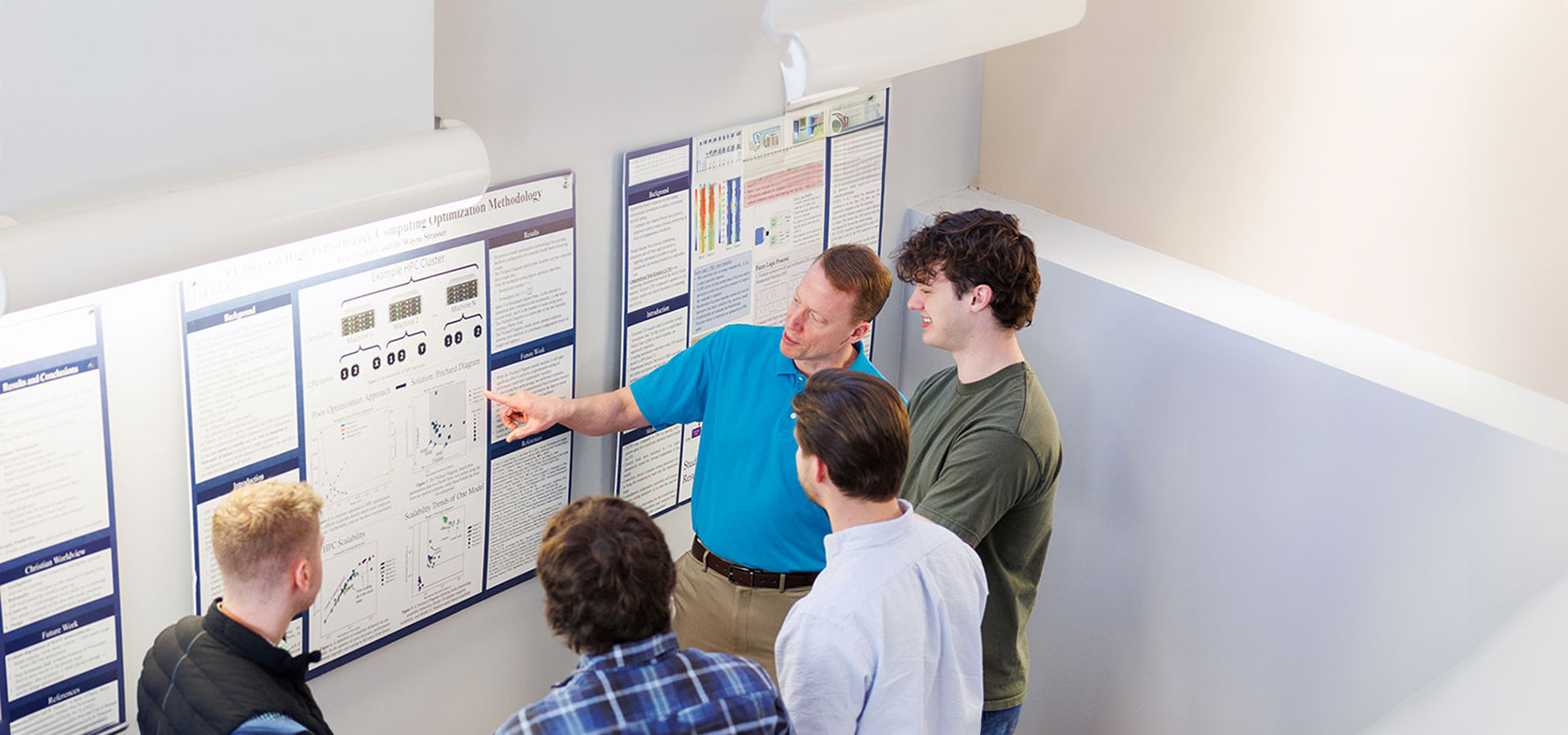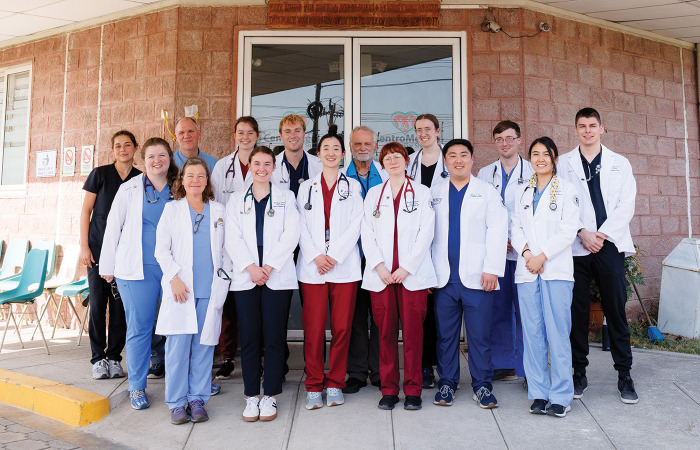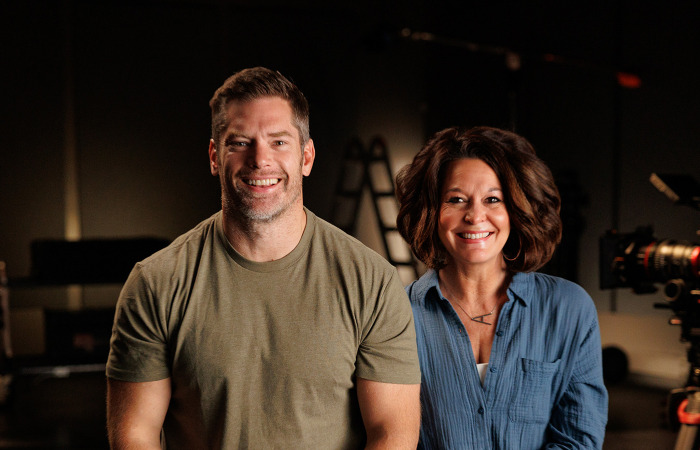A group of Liberty University mechanical engineering students has been conducting research in fluid dynamics — the study of the movement of liquids, gases, and solid particles and how they interact with their surrounding environment — to advance technological applications ranging from blood circulation and brain injury therapy to internal combustion engines and nuclear reactors.
The F.L.U.I.D. group (which stands for Flow at Liberty University for Innovation & Design) began in 2019 and conducts research for external companies out of Liberty’s CERE building, led by School of Engineering Professor Wayne Strasser, P.E., who serves as the faculty advisor and research mentor.
“F.L.U.I.D. is made up of brilliant graduate students from all over the world, along with dozens of talented undergraduates from right here at LU,” Strasser said. “In the last year, we have presented our work at international conferences, participated in internships, won awards, and published papers in leading fluid dynamics journals. In doing so, we have advanced humanity’s understanding of key fluids-related topics, such as how fuels break apart in rocket engines, how to prevent a chemical reactor from exploding, why small flaps on sharkskin help sharks maneuver, and how to design medical devices to help us breathe.”
Strasser said God’s majestic, purposeful creation involves intricate fluid physics in everything from waterfalls and rivers to hurricanes and erupting volcanos. These flows inherently involve complex interplay between the multiple phases — liquids, gases, and solid particles. Studying these interactions has important applications to our everyday lives and bodies, from medicine to nearly every industry, including chemical, energy production, transportation, and food distribution.

“Within these mixtures of phases are intricate tug-of-war challenges between forces, such as surface tension, gravity, and pressure. Our research is focused on understanding these interactions, harnessing their benefits, and managing their dangers for these industries. In the F.L.U.I.D. group, we answer these questions as we dive deeply into the Creator’s physics.”
The field is more specifically called computational fluid dynamics, or CFD, and Strasser’s students use it to perform calculations and analyze and solve problems involving fluid mechanics using computer models.
Graduates who were part of the F.L.U.I.D. group said the work helped them transition seamlessly into their professional fields.
Eric Turman (’20, ’22) has worked for General Motors for the past three years, currently as an advanced propulsion engineer on the drive systems and motors team developing the next generation of drive units and hybrid transmissions. He is based out of the Warren Tech Center, GM’s main engineering division in Detroit with 22,000 employees.
He said his research at Liberty was “a good learning process of trying to understand a problem intricately and then … to figure out a solution.”
“I got a good understanding when I was working under Wayne (Strasser) of ‘How do you take a really complex topic and then figure out how to make it make sense (and) make others understand and see the value in it?’”
Reid Prichard (’19, ’24) is a thermal hydraulics core design engineer for nuclear reactors at BWXT Advanced Technologies’ headquarters in Lynchburg, Va.
“Liberty’s Ph.D. program is a challenging one and you have to work hard, and it absolutely pays off,” he said. “It really prepared me for success at BWXT, and I don’t think I would be as self-driven and confident to take the reins and start taking on big projects without it.”




